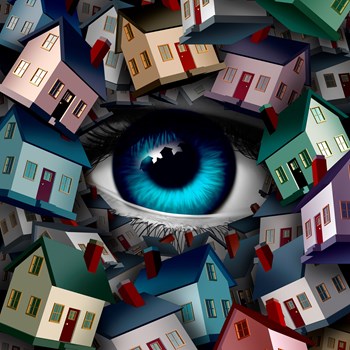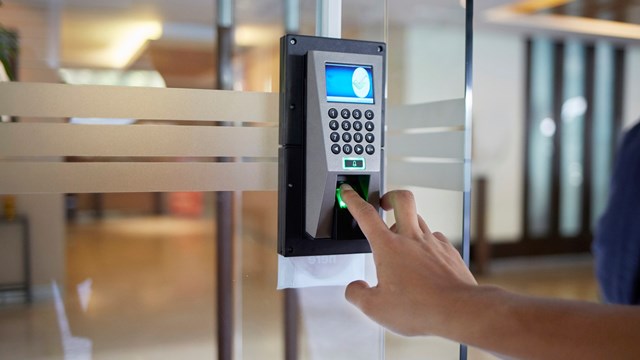
Everyone is right to be concerned with the safety of their communities, whether they live in an area highly susceptible to crime or a sleepy Mayberry-esque hamlet. Condominiums, cooperatives, and homeowners’ associations are no exception; in fact, the communal nature of these environments may make it even more likely that residents would want to band together in effort to advocate for their mutual well-being.
Sometimes, this takes on the form of a neighborhood watch, with neighbors working together to establish a chain of command that will rapidly alert the proper authorities should something seem amiss. And this can often be well and good; mutual support systems are inherently a positive, and neighborhood watch programs can and do have a place in a multifamily residential context. But it’s important to be aware of the boundaries. As the death of Trayvon Martin in 2012 starkly demonstrated, when unqualified, untrained citizens take the law into their own hands, tragedy can all too easily be the result.
Right Neighborly
When considering establishing a neighborhood watch, it’s important for an association to acknowledge where its responsibilities lie and what its specific goals are — and then develop a structure from there. The primary purpose of a neighborhood watch should be to observe and report, rather than intervene and escalate.
“It’s okay to have a neighborhood watch; it’s certainly not illegal, and it’s usually not prohibited by condo or HOA documents,” says Frank Flynn, managing partner and owner of the Boston-based Flynn Law Group. “Having people walk around and patrol is certainly fine. However, it must be stated that a neighborhood watch is NOT the police, and we’ve had some situations wherein neighborhood watches have become overzealous.”
“[Neighborhood watch] is an area that needs to be handled delicately, and must be approached very cautiously,” warns David Muller, a community association attorney with the international law firm Becker & Poliakoff. “There’s a common misconception that community associations affirmatively ensure the safety of their residents and owners, but the reality is that associations are tasked with doing that which is required of them under the governing documents and the statutes. Unless those documents specifically state that the association is tasked with protecting the residents from crime, then that’s not one of its affirmative obligations. Now, a lot of times people misconstrue that statement as allowing the board to turn a blind eye, but of course, that’s not the case, either. If you’re aware of violations that are happening and ignore them, there could be liability for the association.”
Of course, not every association is content with adhering to its documents and nothing more. Some will strive to go above and beyond to bolster their communities. And if this means considering forming a watch group or committee, it’s crucial that it be done the right way.
Carmen Caldwell, treasurer of the National Crime Prevention Association and executive director of Citizens’ Crime Watch of Miami County, stresses that neighborhood watches work best in communities where the owners live in their residences year-round. “The essence of a neighborhood watch is establishing a phone chain,” she explains. “Everyone participating exchanges numbers—but if many people are leaving for the winter, that chain falls apart.”
As part of Caldwell’s crime prevention work, “We’ll go into communities and give quarterly crime prevention presentations. We educate residents as to how they can be safe, what they can do, and how to establish relationships with law enforcement, which is very important. A lot of times in large complexes, people don’t want to call the police. They don’t want their neighbors to know that they were the ones who made the call. But you don’t have to give your phone number; you don’t even have to give your name. You just have to give a description of what’s going on.”
“With HOAs, we’ll go in every three months and do an hour or 90-minute presentation with a police officer in tow,” she continues. “Especially toward the end of the year, around Christmas, crime consistently goes up. And people are busy; they’re paying less attention, so we really drive home the importance of staying aware.”
The Shape of Things
The pros stress that clear structure and a chain of command are imperative in order to establish and maintain a successful neighborhood watch. Communities come in all shapes and sizes, but there are certainly some best practices when it comes to patrolling one’s own community.
“The whole purpose of neighborhood watch is to be aware of who and what does or does not belong in the community,” says Caldwell. “We explain to associations that neighborhood watch is done block-by-block. You have a block captain who congregates neighbors on their street or in front of their house to organize. We’ll bring an officer in and run through the phone chain, explain how and when to call the police. A lot of people watch too much television, and they’re not aware of how these things play out in reality.”
Caldwell also encourages boards to really get involved and take the reins. “If the president of an HOA or townhouse community calls for a general meeting and we come in and explain the program, it helps if the president then offers to hold the subsequent meeting on their block, and then the secretary will preside over the next one, etc. If the board leads via implementation, the rest of the community tends to come along. If you’re the president and you claim that you’re going to prioritize crime watch in your community, but you don’t take it upon yourself to preside over a meeting, what does that tell the neighborhood? You can’t just pay lip service.”
Muller concurs. “A lot of associations want to get out in front of a potential problem and prevent something from happening down the line by taking a series of actions. And that’s true, they may be successful in prevention. But it’s like anything else in life: if you take it on, you actually have to follow through with it. You have to make sure you do it correctly, and if you take on this burden but you don’t do it correctly and you lapse in something that you were supposed to do, you’ve potentially created a liability which you may not have otherwise had.”
An App for That
If the expression ‘phone chain’ seems a bit antiquated in 2016, that hasn’t escaped Rodney Russell of the Atlanta-based National Association of Neighborhood Watch Organizations, Inc. (NANWO), which has recently developed a mobile application that will allow users to report and log suspicious sightings in their neighborhoods onto a shared map interface in real time. (For more information on their app, visit www.nanwo.org)
“Neighborhood watch, in the ‘see something, say something,’ capacity, has been an entity in some form since colonial days,” says Russell. “The ‘Lost Dog’ poster nailed to the utility pole led to phone trees, which led to email.” But as Caldwell mentions above, “if someone is out of town, out of the house, or even in the shower, there’s no immediacy. And some people get dozens of emails per day, or only check them in the morning. You need both a block captain and a neighborhood coordinator to gather everyone’s email addresses and act as the central hub, keeping track of who moves in and out. It’s a lot of work for volunteers. And I know, as I’ve done it.”
Should a community resident witness a crime in progress, they should obviously call the police, but as far as informing their neighbors to be on the lookout, an email may not arrive or be read until it’s too late. But because of the proliferation of smart phones, an app may well prove the future of neighborhood watches – citizens pinning incidents and areas for which to watch out on a map, sharing with neighbors whom they may not even know by name.
Watch Out
While clearly every board wants to protect its community and encourage residents to look out for one another, it also falls to the board to look out for the best interests of the association in the sense that it doesn’t open itself to various liabilities. This is why it’s imperative that any civilian watch group organized by residents or board function within certain legal and liability boundaries.
“I think we can agree that, when properly done, neighborhood watch is good,” says Russell. “It can prevent things. It can make things run smoothly and move a community in the right direction and minimize problems. But when it goes wrong, it goes very wrong.”
Flynn reiterates the crucial distinction that neighborhood watches should in no way assume the responsibilities of the police. “If you have a neighborhood watch that is stepping in, trying to prevent this or that perceived violation, you are taking on a huge liability. A neighborhood watch should do exclusively that: WATCH. Or call the police. It shouldn’t be patrolling the community, intervening in situations. The next thing that will happen is that it will get a discrimination suit. If you’re going to act like the police at your property, you’re going to have all of the claims of wrongdoing that police get: assault and battery, racial profiling, etc. There needs to be a code of conduct for the neighborhood watch such that it doesn’t lead to increased liability.”
Muller recommends that boards reach out to their insurance agents regarding their coverage before establishing any formal neighborhood watch committee. “The agent may say that a neighborhood watch is a formally recognized committee and there’s no coverage for it,” he says. “You either might consider finding out if there’s a rider or supplemental policy that may provide some coverage, or abandoning the endeavor altogether. Also, find out if coverage extends to committee persons or just board members and officers. Talk to your agent and get the real world perspective from the insurance side of things.”
In the final analysis, boards and residents alike must keep it clearly in mind that a neighborhood watch is not and should not be a crime fighting initiative. It should be an organized system of observance, designed to expedite the reporting of suspicious activity so a community can nip problematic conduct in the bud before it gets worse.
Mike Odenthal is a writer and reporter with New England Condominium.






Leave a Comment